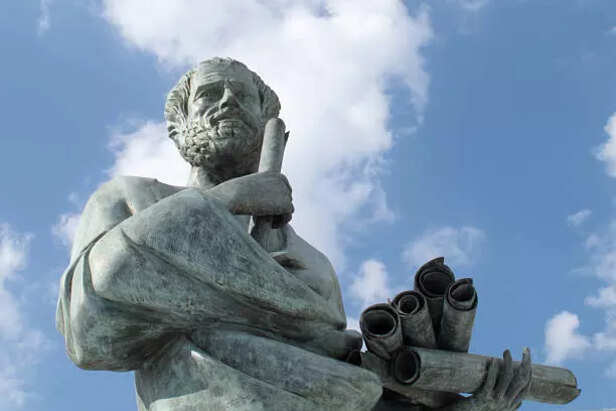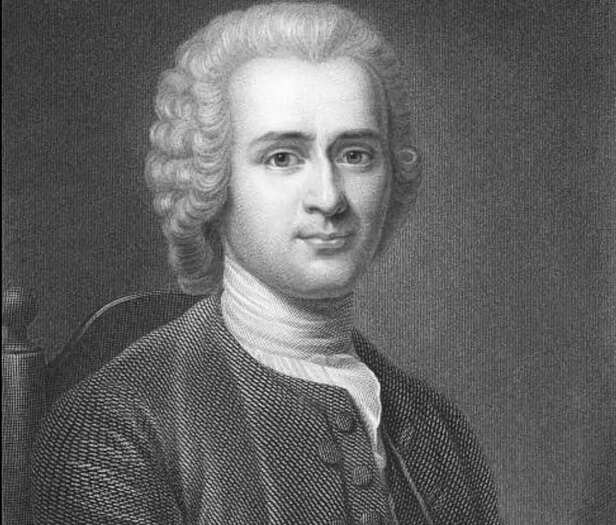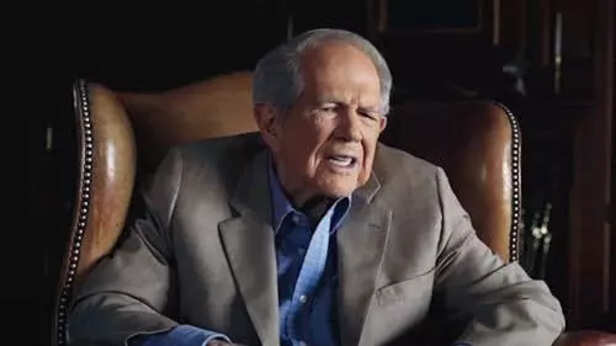Disturbing Words from History’s So-Called Powerful Men—A License to Anti-Feminism
Ankit Gupta | Apr 30, 2025, 22:35 IST
( Image credit : Timeslife )
These Statements not only reflect personal biases but also underscore the cultural and societal values of their times, which often placed women in subordinate, restrictive roles. Overcoming such attitudes has been a long journey, with the feminist movements challenging these harmful views and advocating for women’s rights and equality.
The history of thought, especially when it comes to gender, is deeply entrenched in patriarchal ideas that have shaped how women are perceived, treated, and valued in society. Some of history's most influential thinkers, including philosophers, religious figures, and social leaders, have expressed views that are, by today's standards, not only controversial but also deeply misogynistic. The following quotes, which come from powerful men like Martin Luther, Aristotle, Jean-Jacques Rousseau, and Pat Robertson, are a reflection of attitudes toward women that have influenced societal norms for centuries. This article seeks to critically examine these disturbing statements, explore the intellectual and cultural contexts in which they were made, and understand their lasting impact on gender relations.
"Women Are Nothing But Machines For Producing Children."

Martin Luther, the 16th-century theologian and father of the Protestant Reformation, played a key role in challenging the Roman Catholic Church's authority. However, despite his revolutionary religious ideas, Luther held profoundly conservative views about women. His teachings were rooted in a patriarchal interpretation of Christianity, where women were seen primarily as wives and mothers.
Luther's perspective reveals the deeply entrenched misogyny in religious doctrine at the time. His view that women are "machines for producing children" reduces their identity to mere reproductive functions. This reduction of women's value to biological functions perpetuated gender roles that confined women to the domestic sphere, stripping them of agency and individuality. Furthermore, his callousness towards the suffering of women during childbirth reflects a disregard for women's well-being, aligning with broader societal views that placed little value on women's health or autonomy.

Aristotle, the ancient Greek philosopher, is considered one of the most influential thinkers in Western intellectual history. His works laid the foundation for much of Western philosophy, science, and political thought. However, his views on women have been widely criticized as deeply sexist. According to Aristotle, women were biologically and morally inferior to men, a view that reinforced the subjugation of women in ancient Greek and Roman societies.
Aristotle’s assertion that women are inherently inferior to men reveals the deeply ingrained patriarchy of ancient philosophical traditions. His ideas about gender were not just theoretical but influenced the structure of society for centuries. This hierarchical thinking was embedded in laws, customs, and family structures that marginalized women and denied them basic rights and opportunities. Aristotle’s view also set the tone for later philosophers, whose works would continue to perpetuate the idea of male superiority, contributing to the systemic oppression of women throughout history.

Rousseau, an Enlightenment philosopher and author of The Social Contract, is often credited with advocating for human liberty and equality. However, his views on women were remarkably traditional and patriarchal. Rousseau believed that women’s primary role was to serve and please men, which sharply contradicted his ideas about equality and freedom for men.
Rousseau’s statement, "Woman is made specially to please man," encapsulates the deeply gendered assumptions of his time. His work reinforced the idea that women were subordinate to men and existed to fulfill their needs, whether domestic or sexual. Despite his advocacy for individual rights and freedom, Rousseau's treatment of women was restrictive and narrow, positioning them as objects of male desire rather than independent beings with their own autonomy. This perspective on women can be seen as a product of the Enlightenment’s contradictions, where progress in political thought for men did not extend to the realm of gender equality.

Pat Robertson, a prominent American televangelist, is known for his conservative Christian views. His comments about feminism come from a broader reactionary perspective against women’s liberation movements in the 20th century. Robertson's statement is a caricature of feminist beliefs, representing a distorted view of feminism as a radical and destructive force.
Robertson’s outlandish claim about feminism is a reflection of the fear and resistance many conservative figures had towards the feminist movement, particularly in the second wave. By framing feminism as a threat to traditional family values and social order, Robertson’s views contribute to the ongoing demonization of feminist thought. His statement reflects a fear of the changing roles of women in society and an attempt to maintain patriarchal control. In reality, feminism advocates for gender equality and women’s autonomy, not the extreme and unfounded claims made by Robertson. His rhetoric reveals a deep resistance to progress and the empowerment of women, showcasing how misogyny is often cloaked in religious or cultural conservatism.
The views expressed by Martin Luther, Aristotle, Jean-Jacques Rousseau, and Pat Robertson are not isolated ideas but reflect a broader cultural and intellectual pattern of patriarchal thought. These figures, who held significant power and influence in their respective times, helped shape the framework through which society viewed women for centuries. Although progress has been made, the remnants of these misogynistic views persist today, highlighting the ongoing struggle for gender equality. By critically examining these statements, we can better understand the historical forces that have shaped women's status and work toward a more equitable future, one that values the autonomy and dignity of all individuals, regardless of gender.
"Women Are Nothing But Machines For Producing Children."
"If A Woman Grows Weary And At Last Fies From Childbearing, Matters Not. Let Her Die From Bearing, She Is There To Do It"

Martin Luther (Image Credit: Pixel)
( Image credit : Timeslife )
Martin Luther, the 16th-century theologian and father of the Protestant Reformation, played a key role in challenging the Roman Catholic Church's authority. However, despite his revolutionary religious ideas, Luther held profoundly conservative views about women. His teachings were rooted in a patriarchal interpretation of Christianity, where women were seen primarily as wives and mothers.
Luther's perspective reveals the deeply entrenched misogyny in religious doctrine at the time. His view that women are "machines for producing children" reduces their identity to mere reproductive functions. This reduction of women's value to biological functions perpetuated gender roles that confined women to the domestic sphere, stripping them of agency and individuality. Furthermore, his callousness towards the suffering of women during childbirth reflects a disregard for women's well-being, aligning with broader societal views that placed little value on women's health or autonomy.
"The Male Is By Nature Superior, And The Female Inferior; And The One Rules, And The Other Is Ruled"

Aristotle (Image Credit: pixel)
( Image credit : Timeslife )
Aristotle, the ancient Greek philosopher, is considered one of the most influential thinkers in Western intellectual history. His works laid the foundation for much of Western philosophy, science, and political thought. However, his views on women have been widely criticized as deeply sexist. According to Aristotle, women were biologically and morally inferior to men, a view that reinforced the subjugation of women in ancient Greek and Roman societies.
Aristotle’s assertion that women are inherently inferior to men reveals the deeply ingrained patriarchy of ancient philosophical traditions. His ideas about gender were not just theoretical but influenced the structure of society for centuries. This hierarchical thinking was embedded in laws, customs, and family structures that marginalized women and denied them basic rights and opportunities. Aristotle’s view also set the tone for later philosophers, whose works would continue to perpetuate the idea of male superiority, contributing to the systemic oppression of women throughout history.
"Woman Is Made Specially To Please Man"

Jean-Jacques Rousseau (Image Credit: Freepik)
( Image credit : Timeslife )
Rousseau, an Enlightenment philosopher and author of The Social Contract, is often credited with advocating for human liberty and equality. However, his views on women were remarkably traditional and patriarchal. Rousseau believed that women’s primary role was to serve and please men, which sharply contradicted his ideas about equality and freedom for men.
Rousseau’s statement, "Woman is made specially to please man," encapsulates the deeply gendered assumptions of his time. His work reinforced the idea that women were subordinate to men and existed to fulfill their needs, whether domestic or sexual. Despite his advocacy for individual rights and freedom, Rousseau's treatment of women was restrictive and narrow, positioning them as objects of male desire rather than independent beings with their own autonomy. This perspective on women can be seen as a product of the Enlightenment’s contradictions, where progress in political thought for men did not extend to the realm of gender equality.
"Feminism Encourages Women To Leave Their Husbands, Kill Their Children, Practice Witchcraft, Destroy Capitalism, And Become Lesbians"

Pat Robertson (Image Credit: Pixabay)
( Image credit : Timeslife )
Pat Robertson, a prominent American televangelist, is known for his conservative Christian views. His comments about feminism come from a broader reactionary perspective against women’s liberation movements in the 20th century. Robertson's statement is a caricature of feminist beliefs, representing a distorted view of feminism as a radical and destructive force.
Robertson’s outlandish claim about feminism is a reflection of the fear and resistance many conservative figures had towards the feminist movement, particularly in the second wave. By framing feminism as a threat to traditional family values and social order, Robertson’s views contribute to the ongoing demonization of feminist thought. His statement reflects a fear of the changing roles of women in society and an attempt to maintain patriarchal control. In reality, feminism advocates for gender equality and women’s autonomy, not the extreme and unfounded claims made by Robertson. His rhetoric reveals a deep resistance to progress and the empowerment of women, showcasing how misogyny is often cloaked in religious or cultural conservatism.
The views expressed by Martin Luther, Aristotle, Jean-Jacques Rousseau, and Pat Robertson are not isolated ideas but reflect a broader cultural and intellectual pattern of patriarchal thought. These figures, who held significant power and influence in their respective times, helped shape the framework through which society viewed women for centuries. Although progress has been made, the remnants of these misogynistic views persist today, highlighting the ongoing struggle for gender equality. By critically examining these statements, we can better understand the historical forces that have shaped women's status and work toward a more equitable future, one that values the autonomy and dignity of all individuals, regardless of gender.
